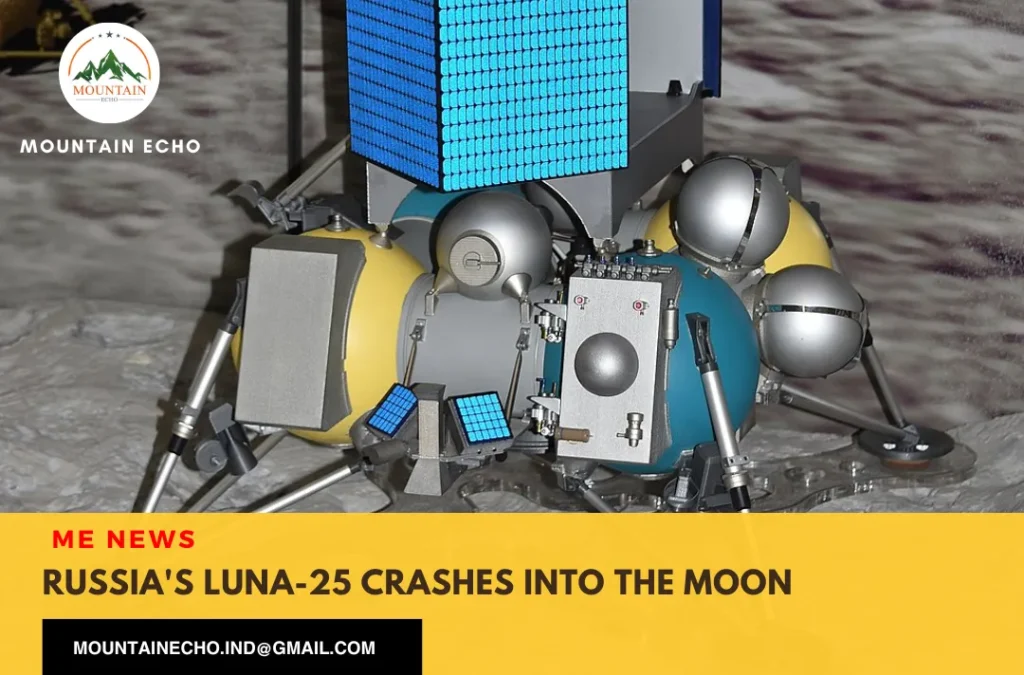Russia’s spacecraft Luna-25 crashes into the Moon
WhatsApp Channel
Join Now
Russia’s spacecraft Luna-25 crashed into the moon because it started spinning out of control. The spacecraft was on a mission to explore a portion of the moon which may have deposits of precious elements and frozen water.
Russia’s space agency, Roscosmos, encountered a problem while trying to guide Luna-25 into a safe orbit before landing but unfortunately lost contact. The spacecraft was supposed to land on the moon on Monday, August 21st, but that couldn’t happen due to this failure.
This crash is a big disappointment for Russia’s space program. Russia hadn’t been on a moon mission since 1976. It was Russia’s first moon mission in 47 years. Russia was also in a bit of a competition with India, whose spacecraft Chandrayaan-3 is supposed to land on the moon soon.
India and Russia were trying to be the first to land on the moon’s south pole. As far as moon’s mission is concerned, only three countries have been successful: the erstwhile Soviet Union, the United States and China.
There has been no official statement issued by the Russian space agency about the reasons of the crash. The space agency said that investigations would be carried out about the causes of the crash. They did not specify about any technical glitch that might have occurred in the spacecraft.

The Luna-25 was initially expected to carry a small rover to the moon, but they decided not to do that to make the spacecraft more reliable. It was a small car sized spacecraft and was expected to work for at least a year on the south pole of the moon.
The Luna-25 sent few images of the Zeeman crater. The crater is the third largest on the southern hemisphere of the moon, which has a depth of 8 kms and a diameter of about 190 kms.
The Russian spacecraft shared some early results from its mission. Scientists are studying the data to learn more about the moon’s soil and its chemical elements. The spacecraft’s equipment also detected a small space rock hitting the moon.
The Luna-25 was a pet project of President Vladimir Putin who dreamt of making Russia a space superpower. The project’s success could prove vital in his efforts to move Russian launches from the Baikonur Cosmodrome in Kazakhstan.
Telegram Channel
Join Now



